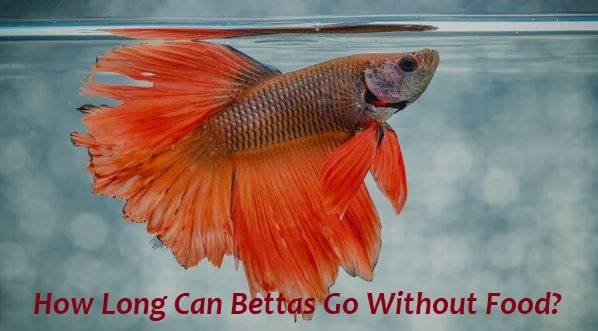Bettas are some of the most popular pets in the aquarium hobby. Their vibrant colors, unique personalities, and ability to thrive in various conditions make them a favorite among fish keepers. However, as with all living creatures, proper nutrition is crucial for their health and well-being. As a Betta owner, it is your responsibility to ensure that your fish is fed adequately. But what happens if you have to leave for an extended period, such as during a vacation or business trip? How long can Bettas go without food? In this article, we will explore the feeding habits of Bettas and provide you with essential information on how long they can survive without food.

The Feeding Habits of Betta Fish
Before we dive into the topic of how long Bettas can go without food, let’s first understand their natural feeding habits. In the wild, Bettas are carnivorous and feed on small insects, larvae, and crustaceans. They have a relatively slow metabolism, which means they do not need to eat frequently. In their natural habitat, food can be scarce, and Bettas are used to going for days or even weeks without proper nourishment.
In captivity, however, Bettas have access to regular meals, and their bodies are not accustomed to prolonged periods of starvation. This is why it is essential to establish a consistent feeding schedule for your Betta and stick to it. Overfeeding or underfeeding your fish can have adverse effects on their health.
Consequences of Underfeeding Bettas
Underfeeding your Betta can lead to malnutrition, which can cause stunted growth, weakened immune system, and organ failure. Malnourished Bettas may also become lethargic and lose their vibrant colors. In severe cases, they may even stop eating altogether, leading to starvation and death.
Consequences of Overfeeding Bettas
On the other hand, overfeeding your Betta can also have serious consequences. Excess food can pollute the water and lead to an increase in ammonia and nitrite levels, which are harmful to fish. Overfed Bettas may also become bloated, making it difficult for them to swim and causing discomfort. In some cases, overfeeding can lead to obesity, which can put a strain on their organs and shorten their lifespan.
How Long Can Bettas Go Without Food?
Now that we understand the feeding habits of Bettas and the consequences of underfeeding or overfeeding, let’s answer the question at hand: how long can Bettas go without food? The answer is not straightforward, as it depends on various factors such as the age, health, and environment of the fish.
In general, healthy adult Bettas can survive for ten days to two weeks without food. However, this does not mean that you should leave your fish unfed for that long. As mentioned earlier, prolonged periods of starvation can have detrimental effects on their health and well-being. It is always best to have someone feed your Betta while you are away or invest in an automatic feeder.
Factors That Affect How Long Bettas Can Go Without Food
- Age: Younger Bettas have a faster metabolism and need to eat more frequently than adults. Therefore, they may not be able to survive as long without food.
- Health: Sick or weak Bettas may not be able to go as long without food compared to healthy ones. If your Betta is already malnourished or has underlying health issues, it is crucial to ensure they are fed regularly.
- Environment: The size of the tank and the number of tank mates can also affect how long Bettas can go without food. In a larger tank with plenty of hiding spots and less competition for food, Bettas may be able to survive longer without eating.
Tips for Feeding Your Betta Properly
To ensure that your Betta stays healthy and happy, here are some tips for feeding them properly:
- Establish a feeding schedule: Bettas should be fed once or twice a day, depending on their age and health. It is best to feed them at the same time every day to establish a routine.
- Feed them the right amount: A good rule of thumb is to feed your Betta as much as they can consume in two minutes. Overfeeding can lead to health issues, so it is better to err on the side of caution.
- Provide a varied diet: While Bettas are carnivorous, they also enjoy some plant-based foods such as freeze-dried or frozen bloodworms, daphnia, and brine shrimp. Providing a varied diet will ensure that your Betta gets all the necessary nutrients.
- Remove any uneaten food: If your Betta does not finish their food within two minutes, remove the excess to prevent it from polluting the water.
- Invest in an automatic feeder: If you are going away for an extended period, consider investing in an automatic feeder. These devices can dispense food at pre-set times, ensuring that your Betta is fed even when you are not around.
Conclusion
In conclusion, Bettas can go for ten days to two weeks without food and still survive. However, this does not mean that you should leave them unfed for that long. As responsible fish keepers, it is our duty to provide our Bettas with proper nutrition to keep them healthy and happy. Establishing a consistent feeding schedule, providing a varied diet, and removing any uneaten food are essential steps in ensuring the well-being of your Betta. And if you have to leave for an extended period, make sure to have someone feed your fish or invest in an automatic feeder. By following these tips, you can rest assured that your Betta will thrive in their aquarium for years to come.
